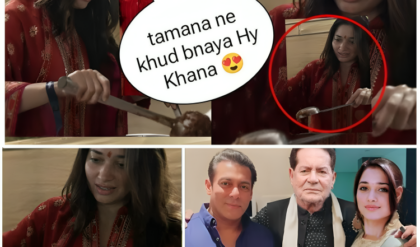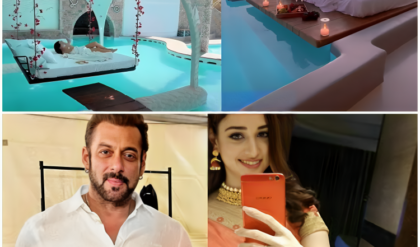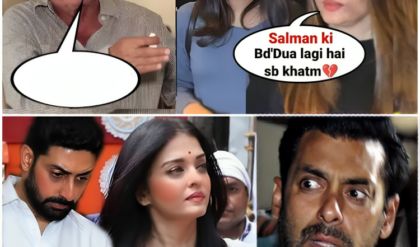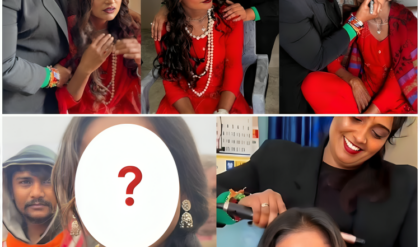Dirty comments on heroine’s body? Such punishment for opposing Modi! Swara Bharkar Katrina Kaif
.
.
“Dirty Comments on Heroines’ Bodies? Such Punishment for Opposing Modi! Swara Bhasker, Katrina Kaif, and the Toxicity of Celebrity Culture in India”
India’s celebrity culture is a complex and multifaceted phenomenon. While the country’s movie stars, especially heroines, are often revered and admired for their beauty and talent, they are also subjected to a level of scrutiny and criticism that can sometimes veer into the toxic and downright misogynistic.
A few recent incidents involving prominent Bollywood actresses, such as Swara Bhasker and Katrina Kaif, have thrown into sharp focus the disturbing reality of how these women are often publicly vilified and objectified, especially when their views challenge the prevailing political or social narratives.
This essay delves into two critical themes: how Indian actresses, irrespective of their success, are subjected to body shaming and personal attacks; and the way in which their political stance—especially when it opposes the ruling government—leads to a different, often vindictive, set of consequences.
Through the examples of Swara Bhasker, Katrina Kaif, and the broader context of Bollywood’s interaction with politics, we will explore the challenges these actresses face, both in terms of their public image and the media’s portrayal of them.
1. Bollywood Actresses and Objectification
In the world of Bollywood, where appearance often plays as much of a role as talent, actresses are no strangers to body shaming and objectification. The way women’s bodies are discussed in the public domain, especially those of high-profile actresses, highlights the deeply ingrained misogyny that runs through not just the entertainment industry but society at large.
Take, for example, how comments about actresses’ appearances often overshadow their performances. While their male counterparts—actors such as Salman Khan, Shah Rukh Khan, and Aamir Khan—may occasionally face criticism for their roles or their acting abilities, it’s almost guaranteed that any actress in the limelight will be subjected to a barrage of comments about her looks, body shape, or attire. From calling them “too thin” to labeling them “too fat,” the media and trolls alike hold Bollywood women to impossible standards of beauty.
A striking example of this is the case of Katrina Kaif, one of the most successful and high-profile actresses in the history of Bollywood. Despite having a thriving career and consistently delivering commercially successful films, she has not been spared the relentless focus on her body. Kaif, who has often been praised for her acting abilities and stunning dance performances, has also been the target of body-shaming. In her early days in Bollywood, especially during her early films like Boom (2003), there were harsh critiques about her accent, her body, and her ability to act in Hindi. Such focus on her appearance rather than her acting skills often reduced her to a mere object of male desire in the eyes of critics and the public.
This objectification of actresses like Katrina is not merely a consequence of media stereotypes. It reflects the larger societal issues where women, especially in the entertainment industry, are valued more for their physical appearance than their intellectual or emotional depth.
2. Swara Bhasker: The Politically Vocal Actress
While actresses like Katrina Kaif are often seen as apolitical figures, Swara Bhasker has been one of the most outspoken celebrities in Bollywood when it comes to politics. Bhasker has consistently used her platform to speak out against what she perceives as the growing authoritarianism in India under Prime Minister Narendra Modi’s leadership. From opposing the Citizenship Amendment Act (CAA) to criticising the government’s stance on various issues, Swara Bhasker has been an ardent voice of resistance in a space where political neutrality is often considered a virtue.
However, her outspokenness has not come without consequences. Bhasker has been at the receiving end of vile social media abuse, including personal attacks on her body, appearance, and character. What’s worse is that much of this abuse seems to be directly linked to her vocal opposition to the ruling party, the Bharatiya Janata Party (BJP), and Prime Minister Narendra Modi.
In a deeply polarized political climate, celebrities like Swara, who openly criticize the government, are often vilified not only for their political beliefs but also for their personal lives. Swara Bhasker, known for her boldness and her activism, is regularly subject to personal slander on social media, where users resort to using her appearance as a weapon against her. For instance, in response to her political views, trolls have often body-shamed her, calling her “ugly” or making sexually explicit remarks. Such tactics are meant to diminish her credibility by reducing her to nothing more than a physical object. This sort of treatment is commonly reserved for women in the public eye who challenge the status quo.
3. The Punishment for Opposing Modi: A Political Vendetta?
The case of Swara Bhasker and other actresses like her, who openly oppose Prime Minister Modi’s government, brings up a more disturbing trend: the political targeting of celebrities. In recent years, the relationship between Bollywood and politics has become more pronounced, especially with the rise of social media platforms that allow celebrities to directly interact with their fans and express their views. In a climate where expressing opposition to the ruling government can lead to severe personal and professional consequences, actresses like Bhasker, who critique the government, often find themselves subjected to more intense scrutiny.
The phenomenon of using personal attacks as a form of punishment for expressing political dissent is not new, but it has become more visible in the age of social media. Celebrities are often labeled as “anti-national,” “urban naxals,” or “deshdrohis” (traitors), and their personal lives become fodder for online abuse. Swara, for example, has been attacked by trolls who label her as a “leftist” and accuse her of being “anti-Hindu” because of her vocal criticism of Modi’s policies. These labels have, in turn, been used to justify a series of personal and professional attacks on her.
Such retaliation, however, does not only take the form of social media abuse. Bhasker and other actresses like her have also been publicly accused of being “privileged” or “out of touch with the common people,” accusations that are commonly hurled at Bollywood stars who speak out against the government. These personal slanders are a way to undermine their political legitimacy, portraying them as disconnected from reality. In Swara’s case, her views have often been painted as part of a larger “urban elite” narrative, used to delegitimize her opinions.
4. Toxicity in Social Media: The Price of Political Engagement
The rise of social media has democratized access to public figures, but it has also opened the floodgates to hate and vitriol, especially for women. In the case of Bollywood actresses like Swara Bhasker, the very act of expressing an opinion has been met with personal attacks on their bodies, their appearance, and even their characters.
The toxicity of social media platforms, particularly Twitter and Instagram, has turned these spaces into breeding grounds for body-shaming, sexual harassment, and bullying, especially for women in the public eye. Swara Bhasker has, on many occasions, been subjected to derogatory comments about her body, with users tweeting about her weight, her facial features, and her looks in an attempt to degrade her. The more she challenges the government or the mainstream narrative, the more vicious the backlash seems to become.
Similarly, while Katrina Kaif is rarely as vocal as Swara Bhasker, she too is not immune to the objectification and criticism that is often a byproduct of Bollywood stardom. Kaif’s rise in Bollywood, fueled by her beauty and charm, has made her the subject of envy and disdain. Criticism of her body and her “un-Indian” accent became a common theme in the early years of her career. Despite being one of the top actresses in Bollywood, Katrina, like many others, is often reduced to a mere object of desire in the eyes of the media and the public.
5. The Role of Media in Perpetuating Gender Bias and Misogyny
While social media plays a role in amplifying body shaming and online harassment, mainstream media also contributes to this culture of misogyny and objectification. In Bollywood, the media’s portrayal of actresses often reinforces traditional gender roles and superficial beauty standards. Actresses are routinely measured against an idealized image of womanhood, one that prioritizes slimness, fairness, and traditional femininity.
Take the case of Katrina Kaif, whose early career was shaped by her “model-like” looks and slender frame. The media often wrote about her in terms of her beauty, while ignoring her craft as an actor. Even today, much of the media’s coverage of Katrina focuses more on her body and less on her work. When she doesn’t fit the conventional beauty mold, as in the case of aging or gaining weight, the media often criticizes her for losing her “glamorous” appeal.
Similarly, the coverage of Swara Bhasker’s political views is often tinged with personal insults that relate to her appearance, her body, and her personality. When Swara made bold political statements or participated in protests, media outlets didn’t focus on her activism. Instead, they dug into her personal life, making her physical appearance a topic of public debate. The media’s focus on her looks rather than her message was part of a larger effort to undermine her credibility and shift attention away from the real issues she was raising.
6. Conclusion: Fighting the Patriarchy and the Politics of Gender
The cases of Swara Bhasker and Katrina Kaif serve as important examples of how Bollywood women, irrespective of their stature or success, are subjected to both gendered attacks and political vendettas. The issue is not just one of body shaming or objectification, but of how women who step out of line—whether by speaking out against the government or challenging societal norms—are often punished with personal attacks.
The social media mobs, the toxic comments about their bodies, and the political slanders they face are all symptomatic of a larger problem: a deeply entrenched patriarchy that aims to silence women who dare to speak their minds. Bollywood, which should ideally serve as a space for self-expression, creativity, and artistic freedom, continues to be a place where women are reduced to their physical attributes and their political views are weaponized against them.
Swara Bhasker and Katrina Kaif, despite their achievements and their individual journeys, must navigate a toxic landscape that refuses to acknowledge their full worth. For the public and media to start respecting these women for their talents and intelligence—and not just their looks—we need a cultural shift. A shift that acknowledges their right to exist in the public eye without being reduced to their appearance or punished for their political beliefs. Only then can we hope to create a Bollywood where women can thrive without fear of judgment or retaliation.
News
Scandalous! Celebrity Caught in a Shocking Incident with a Fan in Public!”
Shocking Incident Involving Kareena Kapoor: A Fan Misbehaves in Front of the Media In a deeply unsettling incident, Bollywood actress Kareena Kapoor Khan found herself at the center of an unexpected and distressing situation when a fan reportedly touched her…
End of content
No more pages to load






